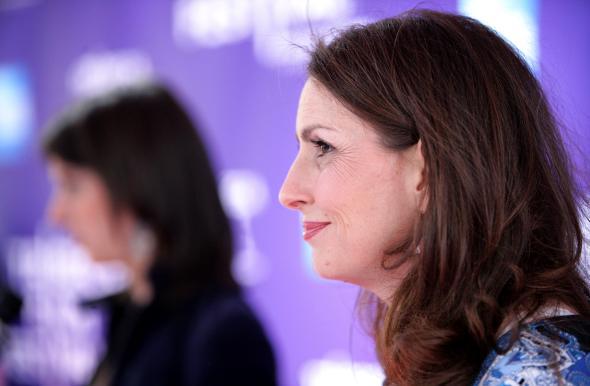Today, the New York Times published undercover video taken at a Success Academy elementary school in Brooklyn that’s part of the controversial charter network known for “no excuses” discipline. It shows a first grade teacher berating and humiliating a girl who stumbles when solving a math problem. The teacher, Charlotte Dial, rips up the student’s paper and barks, “Go to the calm-down chair and sit!,” though by all indications, the girl was already sitting calmly. “You’re confusing everybody,” the teacher says, her voice seething. “I’m very upset and very disappointed.” I found the video shocking and disturbing; other parents I know said they couldn’t bear to watch the whole thing.
According to reporter Kate Taylor, an assistant teacher who was concerned by Dial’s “daily harsh treatment of the children” filmed the scene surreptitiously. Success Academy’s founder, Eva Moskowitz, as well as some of the parents whose children attend the school insisted that Dial’s behavior was anomalous. “But interviews with 20 current and former Success teachers suggest that while Ms. Dial’s behavior might be extreme, much of it is not uncommon within the network,” Taylor writes. She quotes a former Success Academy assistant principal: “It’s this culture of, ‘If you’ve made them cry, you’ve succeeded in getting your point across.’”
As it happens, the Success Academy where the video was filmed is a few blocks from my apartment in the hyper-gentrifying neighborhood of Cobble Hill, Brooklyn. Cobble Hill has been affluent for a while, but in recent years, there’s been an influx of the really rich; early this year, a nearby townhouse sold for $15.5 million. Last year, a friend whose son started kindergarten at our local public elementary school, P.S. 29, was shocked when she realized his class was entirely white. By contrast, if you watch the Success Academy video, you’ll notice that the students, whose faces are blurred out, are largely children of color.
The schools in my neighborhood where white kids go are known for being nurturing and holistic. P.S. 29 has a newspaper club whose parent overseers include Peter Rothberg, associate publisher of The Nation. Earlier this year, the students reported on opposition to high-stakes testing: “The P.S. 29 community is strong and outspoken about keeping enrichment programs at the school and making sure students are well rounded and not just test takers.” We also have two Montessori schools, which emphasize children’s creativity and give them the freedom to follow their own interests. First grade tuition at one of them is $35,600.
Charter schools are a popular cause among elites in New York, particularly on Wall Street. “Hedge fund managers supply the millions that enable charters to thrive,” education scholar Diane Ravitch writes. “They are big givers to charters, and they are big givers to political candidates who support charters.” But if you look around a neighborhood like mine, you’ll see that in many cases, when rich people are educating their own children, only the most progressive, touchy-feely methods will do.
I know that there are Success Academy parents who love the charters for saving their children from chaotic, poorly run public schools. Today, Success Academy posted a recording of Taylor, the New York Times reporter, interviewing several parents whose children attend the Cobble Hill school; many praised Dial. Watching the undercover video, one parent says it sounded like the way she talks to her own children: “It’s a tough love thing.” Perhaps my horror at Success Academy’s methods might strike these parents as a form of elitism. Still, one thing seems to be undeniable: The schools in my neighborhood teach some children to challenge authority, and others to submit to it.
